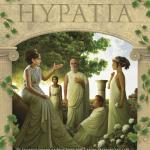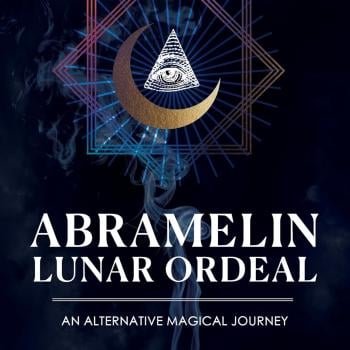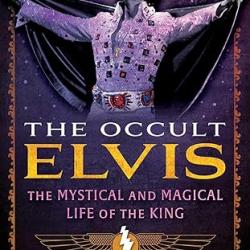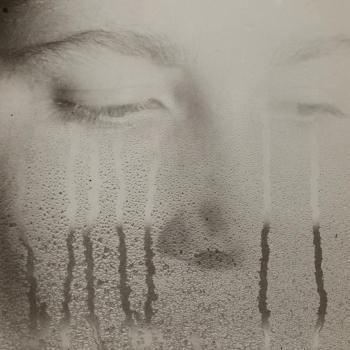Review of The Oracles of Apollo: Practical Ancient Greek Divination for Today by John Opsopaus PhD
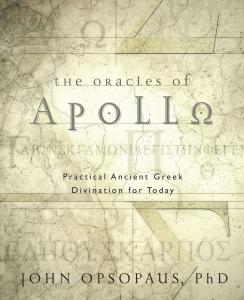
John Opsopaus’ The Oracles of Apollo points out that “since ancient times, divination has been an important tool for seeking guidance from the gods, and most modern Pagans, Wiccans, and others who practice the old faiths are familiar with divination and many practice some divinatory art … “
Mr Opsopaus teaches how to use two rediscovered divination systems:
Firstly, the Alphabet Oracle, a system that uses “the ancient Greek alphabet much like the runes are used … we have actually stone tablets (dating from the early third century CE) that give the divinatory meanings of the letters. … Stone tablets and pillars with the Alphabet Oracle were set up in town squares and similar places where wayfarers could get practical advice on their enterprises.”
Secondly, the Counsels of the Seven Sages, a series of 147 short, oracular statements that were inscribed on tablets at the Temple of Apollo at Delphi. While there is no evidence for them being used for divination in ancient times, they lend themselves very well to being used for this purpose. The Counsels of the Seven Sages “gives advice on how to live well, but it is also practical … “
I particularly enjoyed Chapter 2 which traces the origins of divination in history and mythology. Mr Opsopaus analyzes his data showing the correlation between oracular priestesses, nymphs, bees, honey, nectar, ambrosia and the gods. In the second half of the chapter he outlines the various systems of divination and their possible origins. Importantly, he points out that a divination should be “accompanied by a sincere petition to the gods. This may be accompanied by a vow to be fulfilled if the god helps you out.” A vow to the gods should be taken very seriously. Interpreting the Stoic philosopher Posidonius (135-51BCE), “our divinations will be more successful if we do them in a meditative state, focusing inward and away from our bodies and the visible world. Invite the gods or their assistant daimons to bring the knowledge you seek.” Mr Opsopaus completes the chapter by introducing Neoplatonic philosophy which provides the “most complete and sophisticated theory of divination.” This is like a bonus option for extra credit – it’s great to know, but the divination systems will still work just fine without this knowledge. The average ancient Greek was not a philosopher, but a hard-working individual, looking for an occasional insight into the occasional predicament they found themselves in.
Chapter 3 contains rituals taken from the Graeco-Egyptian magical tradition. Mr Opsopaus extracts a couple of invocations to Apollo from the Greek Magical Papyri (PGM) to form a consecration ritual and a divination ritual. I was very pleased that he limited himself to ancient magic rather than incorporating a modern modality.
The Alphabet Oracle requires 24 round stones, tumbled crystals, pottery shards, discs of clay, or round pieces of wood, onto which the Greek letters have been either painted or carved. While Greek alphabet stones can be purchased, Mr Opsopaus recommends making your own, as “a set of stones is a magical tool, and it is most effective if it is psychically attuned to you, and making it yourself is one way to attune it.” He recommends learning the meaning of each letter and chanting the name of each letter’s spirit over it, as you paint or carve that letter. “Keep your stones in a special jug, box, or bag.” To use the stones, invoke the gods (typically Apollo) and either draw one without looking which feels right, or shake the stones until one jumps out.
Other options are to use a metal leaf, a flat piece of wood, or even a card (like an index card). He also discusses the possibility of using astragaloi (knucklebones), dice, teetotums (tops similar to the dreidel), coins, geomancy, beads, pebbles and so on. The end result is the selection of a letter. Personally, I think that having a bag of 24 round objects each corresponding to a letter is elegant and simple, and allows for individual consecration leading to improved accuracy.
Finally in Chapter 7 we get to the text of the Alphabet Oracle. Mr Opsopaus explains the text, providing a range of situations with what the text is implying as examples. There are other correspondences which may well provide deeper levels of mean. Thus, we have:
Numerical value;
Planet (for the vowels only);
Olympian deity (two letters assigned to each);
Zodiac sign;
Twelve parts of the body corresponding to pairs of letters according to Marcus the Gnostic’s 2nd century CE vision of the goddess, Alêtheia;
Agrippa correspondence – planet, zodiac sign or element;
Lunar symbol (taken from PGM VII: 780-785);
Hieroglyph (taken from Gardner and Budge);
Hour of the day/night (Twelve Hôrai or hours, daughters of Helios – from Hyginus);
Vox magica (word of power/name of its spirit)
Finally in Chapter 7 we get to the text of the Counsels of the Seven Sages, an “ancient collection of 147 pithy and enigmatic sayings, which were inscribed on a tablet at the Temple of Apollo at Delphi.” While the original tablet has been lost, Johannes Stobaeus, who lived in Macedonia in the 5th century CE made a copy of them.
The number 147 is important as the tablet was engraved in three columns, there were seven sages and seven is Apollo’s sacred number.
3 X 7 X 7 = 147.
Also, the Pythagorean name for the number seven is “Athena.”
As stated previously, there is no evidence for the Counsels of the Seven Sages being used for divination in ancient times, but they lend themselves very well to being used for this purpose. Mr Opsopaus discusses a number of methods for consulting the Seven Sages using “beads or pebbles, coins or other discs, special dice and teetotums, and even dominoes.” Once a verse is selected, its interpretation can be consulted. He points out that:
“The Counsels are like spells, divine inspirations prescribed by the Sages as medicine for the soul. They must be taken in and chewed over in order to have their effect. Digest them and they will be absorbed in your soul to make it strong and healthy.”
Overall, I really liked this text and feel that anyone feeling drawn to the Greek deities would do well to try a traditional Greek method of divination, either in addition to, or instead of, more popular modalities such as tarot. I am looking forward to becoming more acquainted with the oracles in a practical sense. My only complaint, and this is a very minor matter, is that the book varies greatly in complexity. Some of the material in the book is very easy to follow, with other sections are very technical, but essential for full immersion into the subject matter. I feel that the technical sections should’ve been placed in appendices so as to not interfere with the flow.
Tony Mierzwicki
Author of Hellenismos: Practicing Greek Polytheism Today and Graeco-Egyptian Magick: Everyday Empowerment.


